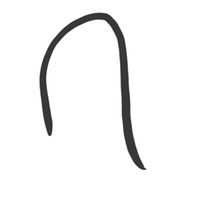A sculptor’s ode to a city



In 1986, to commemorate the birthday of King Hussein, Samer Tabbaa was commissioned by the Amman Chamber of Industry to create monumental stone sculptures for Amman’s Second Circle.

The design, consisting of four elements arranged in an anti-clockwise formation, represents the stages of industry. The fountain, with its flowing water, symbolizes life and nature. The geometric “Equals” symbol seeks harmony between nature and the ceaseless motion of industry, depicted by the serrated wheel. Finally, an upward-ascending graph reflects the nation’s continual growth and progress.

These two sculptures stand on opposite sides of the circle, welcoming visitors to Jabal Amman from both directions. One of the sculptures, a triangular fountain made from green Thaba’a stone and Ma’ani stone, sits at one end, while the wheel—laid perpendicular to the path of passersby—resides at the other. Over the past four decades, the wheel has become one of Amman’s most iconic landmarks, affectionately nicknamed “the pill” by locals.

In its days of construction, Samer had agency over the design of the benches, the kinds of trees planted and the general flow of the circle. He was looking for non-invasive, native trees that required little intervention and looking to create an inviting, meditative space.









